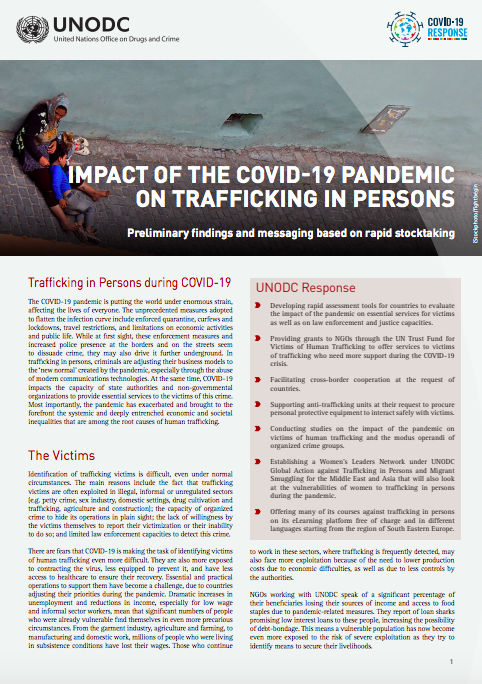The COVID-19 pandemic is putting the world under enormous strain, affecting the lives of everyone. The unprecedented measures adopted to flatten the infection curve include enforced quarantine, curfews and lockdowns, travel restrictions, and limitations on economic activities and public life. While at first sight, these enforcement measures and increased police presence at the borders and on the streets seem to dissuade crime, they may also drive it further underground. In trafficking in persons, criminals are adjusting their business models to the ‘new normal’ created by the pandemic, especially through the abuse of modern communications technologies. At the same time, COVID-19 impacts the capacity of state authorities and non-governmental organizations to provide essential services to the victims of this crime. Most importantly, the pandemic has exacerbated and brought to the forefront the systemic and deeply entrenched economic and societal inequalities that are among the root causes of human trafficking

